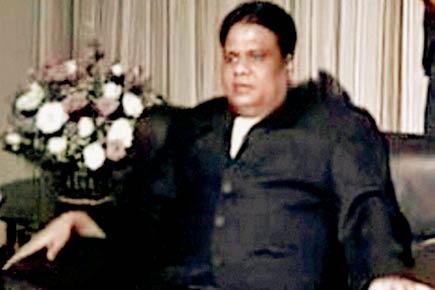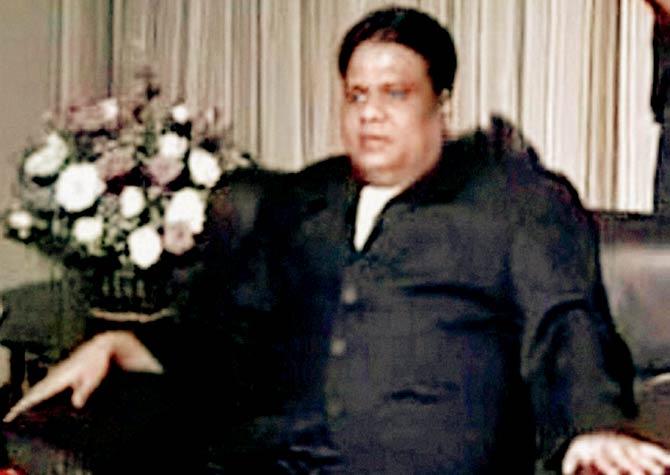Indian intelligence officials hope to utilise the vast network of Chhota Rajan to neutralise what they claim is the growing influence of Vicky Malhotra, a dreaded gangster

New Delhi: Indian intelligence officials hope to utilise the vast network of Chhota Rajan to neutralise what they claim is the growing influence of Vicky Malhotra, a dreaded gangster.
ADVERTISEMENT
Also Read: Did Chhota Rajan surrender to protect himself from Dawood?

On countless ocasions, Chhota Rajan projected himself as an Indian nationalist guarding the nation’s interests against global terrorists like Dawood Ibrahim. Pic/PTI
Malhotra, it is reliably learnt, is back in India after he jumped bail following his dramatic arrest in the Indian Capital in 2005, from the company of a former intelligence bureau chief.
A Home Ministry official told mid-day that the underworld don has agreed to cooperate and offer details on Malhotra’s widespread network around Mumbai and parts of Maharashtra and other states like Andhra Pradesh.
Read Story: Chhota Rajan's arrest insignificant, we want Dawood Ibrahim: Shiv Sena
“Some of these hotspots — directly under the control of Malhotra — are acting as breeding grounds for terror activities in India,” the official said on condition of anonymity.
“It’s a balance of power by getting Rajan to size up Malhotra, his network, and eventually, Chhota Shakeel, who directly controls Dawood Ibrahim’s South Asia operations,” the official further said.
‘Granted certain conditions’
For that, Rajan, the official said, has been “granted certain conditions” which would help him offer “a helping hand” to the Indian authorities to neutralise zones controlled by Malhotra and his henchmen.
The official did not say what those conditions were but it was evident from the conversation, that Rajan had agreed to turn himself in after going through some detailed deliberations with Indian officials in Australia “for a little over a month”.
Rajan, it is learnt, had apprehensions about the commitment of Indian officials, especially in the light of the recent case of Yakub Memon, but was “totally convinced” at the end of the deliberations.
Rajan — Dawood’s star lieutenant until the 1993 Mumbai blasts that killed over 250 people and split the gang along communal lines — had always been willing to play ball with Indian intelligence agencies.
On countless occasions, Rajan projected himself as an Indian nationalist protecting the nation’s interests against global terrorists like Dawood.
In 1994, Rajan was even credited with the killing of a Nepali MP, Mirza Dilshad Beg, who was allegedly promoting ISI activities in Nepal against India.
 Subscribe today by clicking the link and stay updated with the latest news!" Click here!
Subscribe today by clicking the link and stay updated with the latest news!" Click here!






